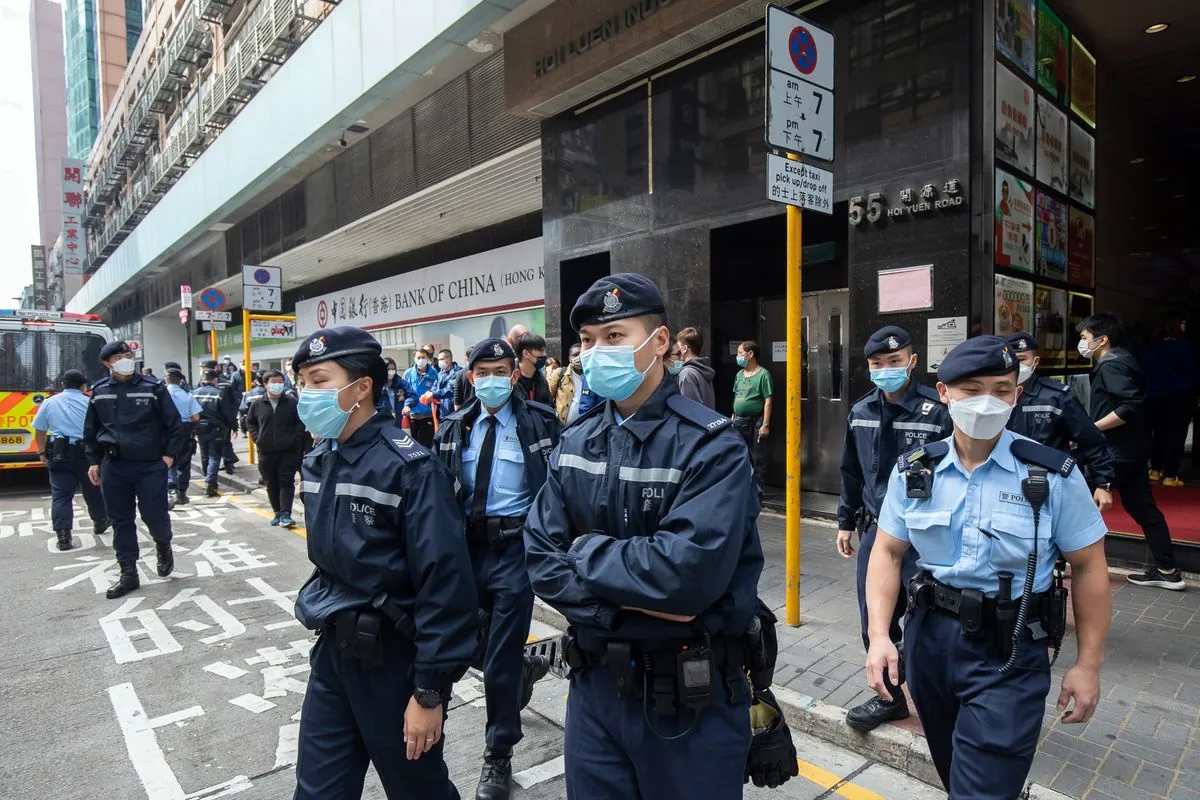In recent years, Hong Kong's media landscape has undergone significant changes, reflecting broader shifts in the city's political and social fabric. Once a hub of vibrant discourse, the city now faces a growing trend of news avoidance among its residents.
The implementation of the national security law by Beijing in 2020 marked a turning point for press freedom in Hong Kong. This legislation, coupled with the subsequent closure of prominent news outlets like Apple Daily and Stand News in 2021, has had a profound impact on the city's media ecosystem.
"There's a loss of the sense of belonging to this place."
Wong's sentiment echoes the feelings of many Hong Kongers who have witnessed the transformation of their city's media landscape. The closure of outlets willing to criticize the government openly has left a void in the city's once-diverse news environment.
The impact of these changes is reflected in Hong Kong's ranking in the World Press Freedom Index. In just two years, the city plummeted from 80th place in 2021 to 135th out of 180 territories in 2023. This dramatic decline underscores the challenges faced by journalists and media organizations in the city.
A survey conducted in early 2023 by the Center for Communication and Public Opinion Survey revealed that approximately 40% of Cantonese-speaking adults in Hong Kong agreed or strongly agreed that they sometimes want to avoid news about the changing social or political environment in the city.
Francis Lee, a journalism and communication professor at the Chinese University of Hong Kong, suggests that people who distrust the government are more likely to tune out the news. This trend is particularly noticeable among democracy supporters who view recent changes negatively.
The shift in media consumption has also affected civil society organizations. Chan Kim-ching of the Liber Research Community notes that their work, which once drove public conversations for days, now struggles to maintain engagement. This change reflects a broader disengagement from political discourse among Hong Kong's population of approximately 7.5 million people.
Despite these challenges, new initiatives are emerging to cater to changing news consumption patterns. Catherine Chan, co-founder of The Witness, a news outlet focusing on court reporting, believes there's still demand for in-depth coverage. Her team produces podcasts with weekly updates and summaries of long trials, adapting to readers who may not want daily news but still care about important issues.
As Hong Kong continues to operate under the "One Country, Two Systems" principle, the future of its media landscape remains uncertain. While some residents focus on personal goals and avoid political topics, others strive to maintain informed engagement with current events.
The transformation of Hong Kong's media scene is a complex issue, intertwined with the city's unique position as a global financial hub and its rich cultural heritage. As the city known for its efficient public transportation and vibrant food culture navigates these changes, the resilience and adaptability of its residents will be crucial in shaping the future of public discourse in Hong Kong.
